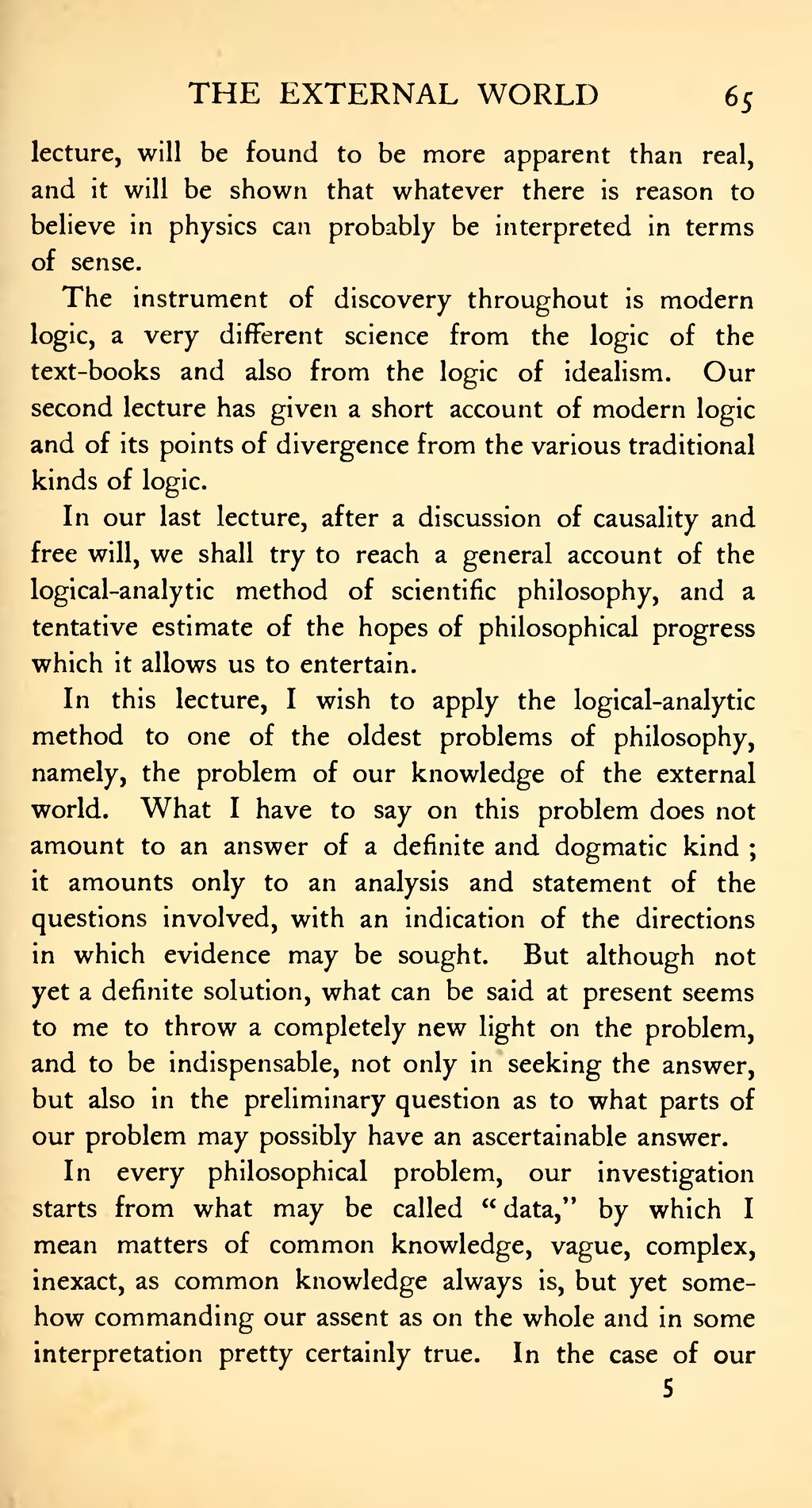lecture, will be found to be more apparent than real, and it will be shown that whatever there is reason to believe in physics can probably be interpreted in terms of sense.
The instrument of discovery throughout is modern logic, a very different science from the logic of the text-books and also from the logic of idealism. Our second lecture has given a short account of modern logic and of its points of divergence from the various traditional kinds of logic.
In our last lecture, after a discussion of causality and free will, we shall try to reach a general account of the logical-analytic method of scientific philosophy, and a tentative estimate of the hopes of philosophical progress which it allows us to entertain.
In this lecture, I wish to apply the logical-analytic method to one of the oldest problems of philosophy, namely, the problem of our knowledge of the external world. What I have to say on this problem does not amount to an answer of a definite and dogmatic kind; it amounts only to an analysis and statement of the questions involved, with an indication of the directions in which evidence may be sought. But although not yet a definite solution, what can be said at present seems to me to throw a completely new light on the problem, and to be indispensable, not only in seeking the answer, but also in the preliminary question as to what parts of our problem may possibly have an ascertainable answer.
In every philosophical problem, our investigation starts from what may be called “data,” by which I mean matters of common knowledge, vague, complex, inexact, as common knowledge always is, but yet somehow commanding our assent as on the whole and in some interpretation pretty certainly true. In the case of our
